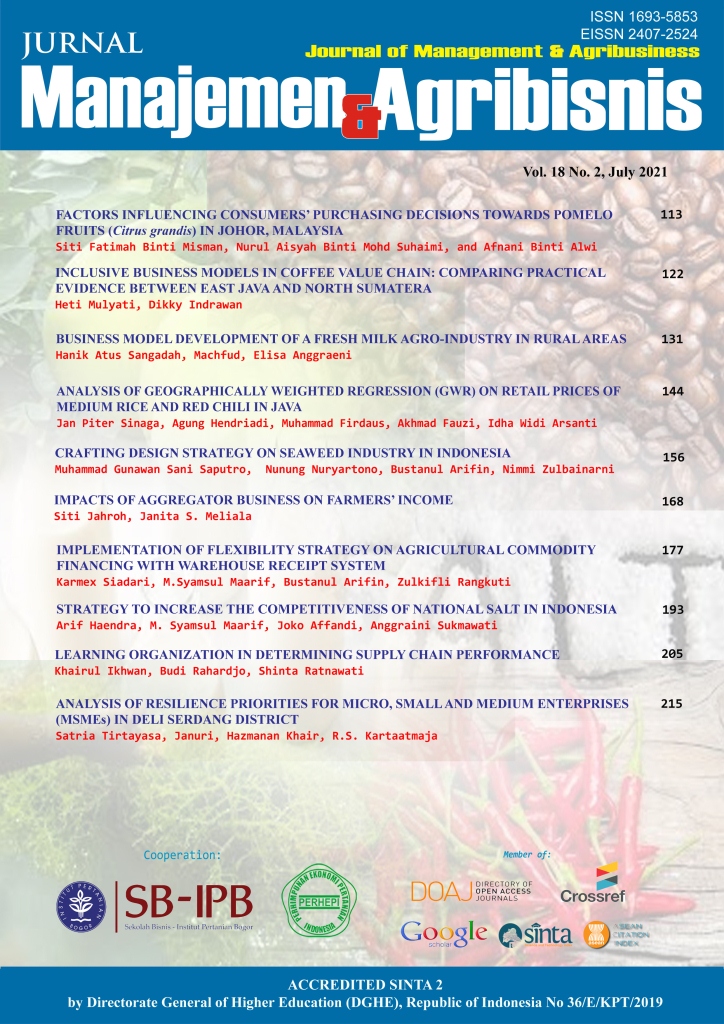Factors Influencing Consumers’ Purchasing Decisions Towards Pomelo Fruits (Citrus grandis) in Johor, Malaysia
Abstract
Pomelo (Citrus grandis or Citrus maxima) is a tropical fruit from Rutaceae family has grown in Malaysia. These natural, non-hybrid citrus fruits originated from Southeast Asia and widely grown in Indonesia, China and Thailand (Morton, 1987; Scora, 1975). Commonly known as Limau Kepala Besar, Limau Bali (pomelo), Limau Tambun and Limau Besar Ledang, this fruit have four famous varieties such as Varieties PO51 (Shanting), Varieties PO52 (Tambun), Varieties PO55 (Limau Besar, Ledang) and Varieties PO56 (Melomas Variety) which can be found in the local and global markets. The aim of this research is to study the characteristics behind every purchasing decision through personal, socio-cultural and psychological factors of consumer. Data were collected using online questionnaire which a total of 100 forms were distributed around Johor, Malaysia. The data were analyzed to identify the relationship between respondent profiles and identify the most influential factors that show the relationship associations with consumer purchasing decisions on pomelo fruits. The results showed that personal, socio-cultural and psychological factors have influenced consumers’ decision-making process when buying the pomelo fruits.
Authors
Authors who publish with this journal agree to the following terms:
- Authors retain copyright and grant the journal right of first publication with the work simultaneously licensed under a Creative Commons Attribution License that allows others to share the work with an acknowledgement of the work's authorship and initial publication in this journal.
- Authors are able to enter into separate, additional contractual arrangements for the non-exclusive distribution of the journal's published version of the work (e.g., post it to an institutional repository or publish it in a book), with an acknowledgement of its initial publication in this journal.
- Authors are permitted and encouraged to post their work online (e.g., in institutional repositories or on their website) prior to and during the submission process, as it can lead to productive exchanges, as well as earlier and greater citation of published work (See The Effect of Open Access).

